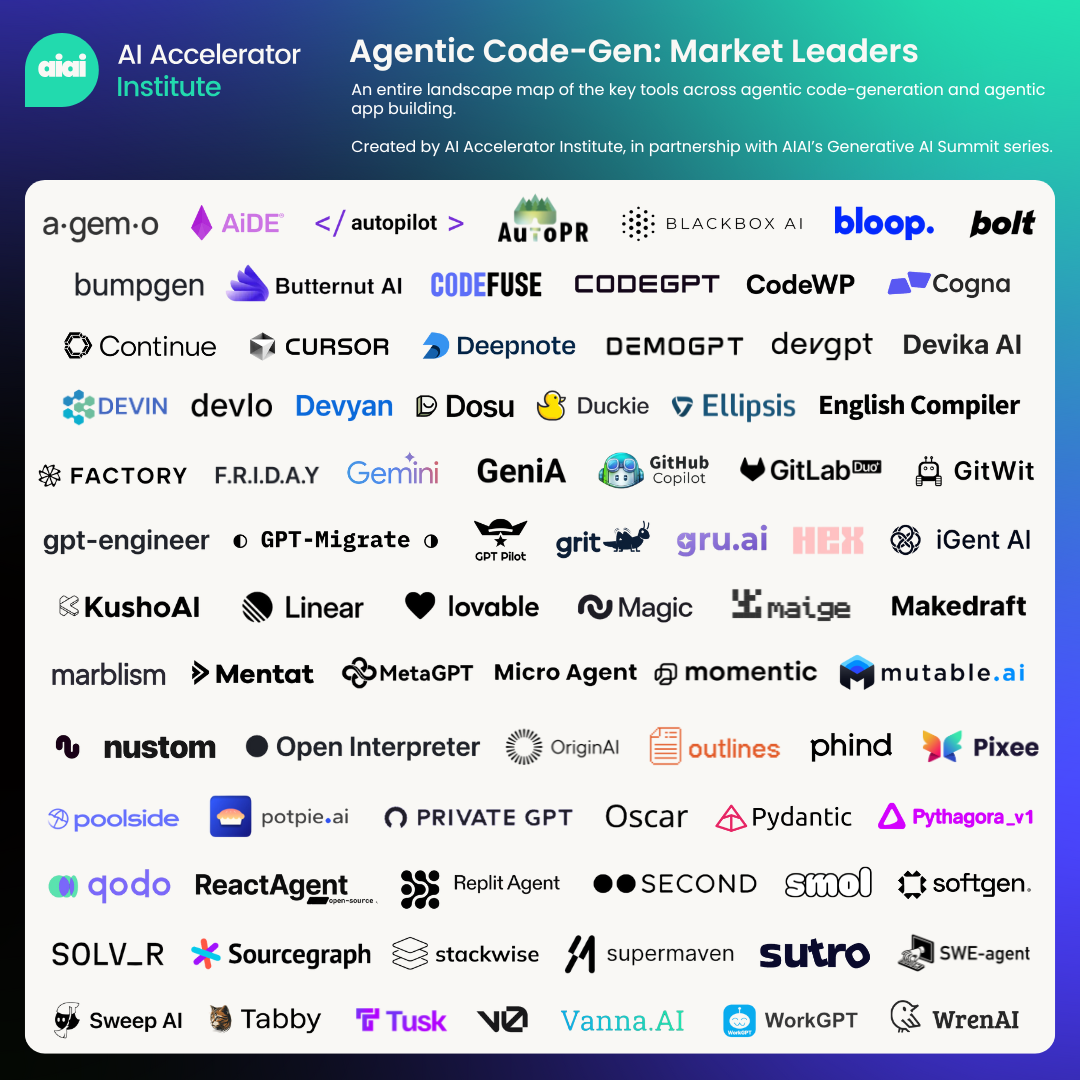The software development landscape is undergoing a seismic shift with the advent of agentic code generation. This transformative technology, powered by generative AI, enables autonomous systems to write, test, and optimize code with minimal human intervention.
As enterprises strive to accelerate development cycles, reduce costs, and improve code quality, agentic code generation is emerging as a critical enabler.
What is agentic code generation?
Agentic code generation leverages AI systems, often built on LLMs, to generate and refine code autonomously. These AI agents can interpret natural language prompts, analyze existing codebases, and produce high-quality, context-aware code tailored to specific requirements.
Unlike traditional code-generation tools, agentic systems go beyond simple code snippets—they can debug, optimize, and even deploy code, making them invaluable for enterprises looking to streamline their software development processes.
The technology is particularly impactful in automated testing, legacy code modernization, and rapid prototyping. For example, AI agents can convert outdated codebases into modern programming languages or generate entire microservices architectures based on high-level design specifications.
If you're ready to use or deploy industry-ready agents that are cost-effective, powerful and value-driving, join us at the world's first Agentic AI Summit:
- Agentic AI Summit, New York, June 5
- Agentic AI Summit, Berlin, September 11
- Agentic A Summit, Toronto, November 20
Emerging market leaders in agentic code generation
While established tech giants like GitHub and OpenAI dominate headlines, a new wave of innovative companies is making significant strides in agentic code generation.

Bolt (by StackBlitz)
StackBlitz’s Bolt is a next-generation AI-powered coding assistant designed to streamline web development. Bolt integrates seamlessly with StackBlitz’s cloud-based development environment, enabling developers to generate, debug, and deploy code in real time.
The focus on web-based development and collaborative coding makes it a standout tool for modern development teams. Bolt’s ability to provide instant feedback and suggestions within the browser is particularly appealing for developers working on front-end and full-stack applications.
GitLab Duo
GitLab, a leader in DevOps platforms, has entered the agentic code-generation space with GitLab Duo. This AI-powered assistant is integrated directly into GitLab’s CI/CD pipeline, offering features like code suggestions, automated testing, and security scanning.
GitLab Duo’s strength lies in its ability to provide end-to-end support for the software development lifecycle, from code generation to deployment. Its seamless integration with GitLab’s existing tools makes it a powerful choice for enterprises looking to enhance their DevOps workflows.
Sourcegraph
Sourcegraph’s Cody is an AI-powered coding assistant that integrates with existing codebases to provide context-aware code suggestions. Cody’s ability to understand and navigate large code repositories makes it a powerful tool for enterprise development teams.
Sourcegraph’s focus on code search and intelligence ensures that Cody can provide accurate and relevant code recommendations, even in complex, multi-repository environments. This makes it particularly valuable for organizations with large, legacy codebases.
Replit
Replit’s Ghostwriter is an AI-powered coding assistant that helps developers write, debug, and deploy code directly within its collaborative IDE. Ghostwriter’s real-time code suggestions and debugging capabilities make it a favorite among startups and individual developers.
Replit’s focus on accessibility and ease of use has positioned it as a leader in the agentic code-generation space, particularly for educational and open-source projects.
The future of agentic code generation
As the technology matures, we can expect agentic code generation to become even more sophisticated. Key trends to watch include:
- Multi-modal AI: Future AI agents will be able to process not just code but also images, diagrams, and natural language, enabling more intuitive and comprehensive code-generation capabilities.
- Autonomous DevOps: AI agents will take on more responsibilities in the software development lifecycle, from code generation to testing, deployment, and monitoring.
- Enterprise adoption: As governance and security concerns are addressed, more enterprises will adopt agentic code-generation tools to modernize legacy systems and accelerate digital transformation.
Conclusion
Agentic code generation redefines how software is developed, tested, and deployed. While established players like GitHub and OpenAI continue to lead, emerging innovators like Bolt (by StackBlitz), GitLab Duo, Sourcegraph, and Replit are pushing the boundaries of what’s possible.
These companies are enhancing developer productivity and democratizing access to advanced coding tools, making it easier for teams of all sizes to build high-quality software.
As highlighted in the Agentic Code-Gen: Market Leaders ecosystem map, the convergence of AI and software development creates a new era of productivity and efficiency. The future of coding is autonomous, and these emerging leaders are at the forefront of this transformation.
To connect with AI builders breaking down deployment challenges, check out some of AIAI's in-person summits this year:
→ Agentic AI Summit New York
→ Generative AI Summit Silicon Valley
→ The entire 2025 calendar



 Follow us on LinkedIn
Follow us on LinkedIn


